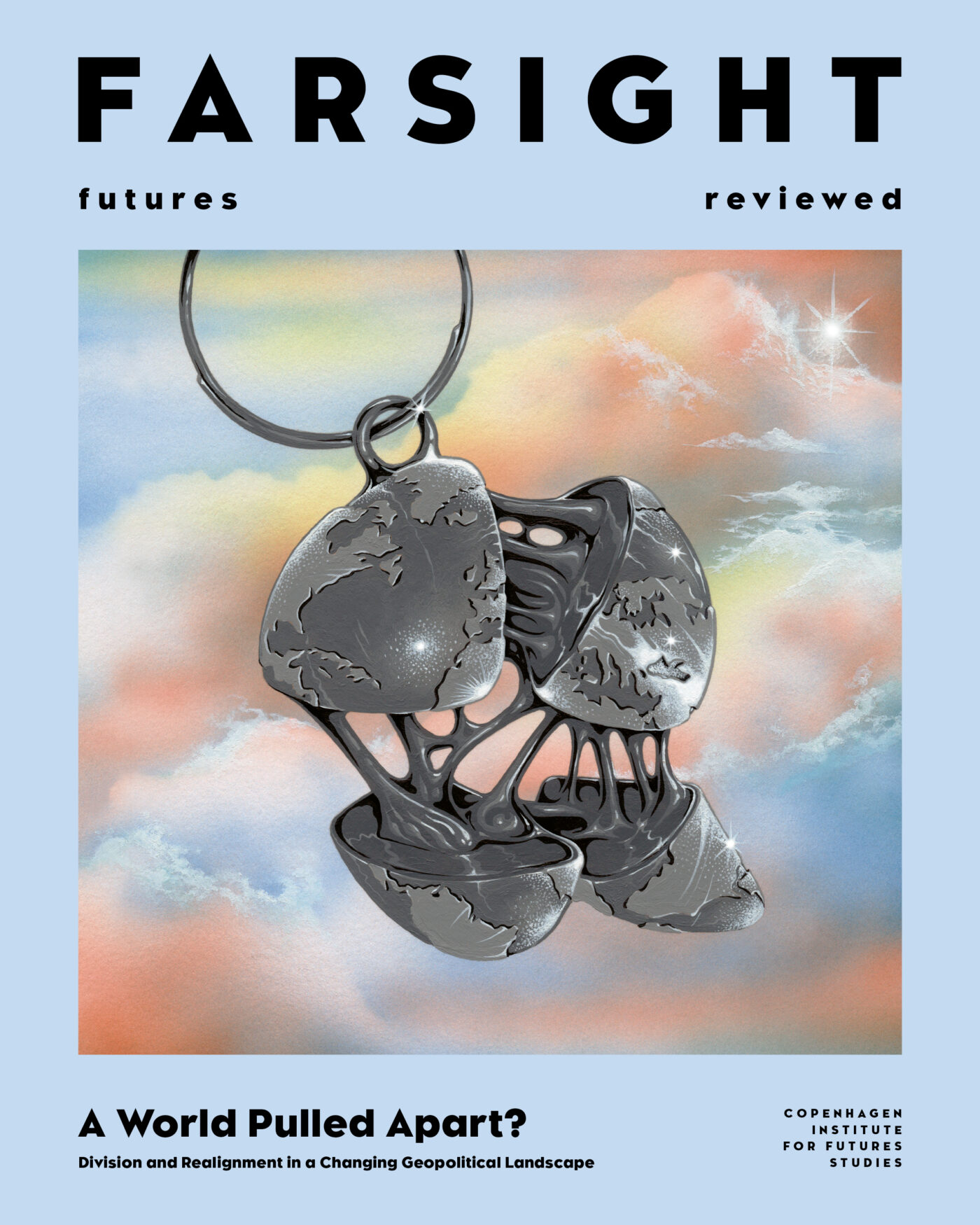
In turn, we use cookies to measure and obtain statistical data about the navigation of the users. You can configure and accept the use of the cookies, and modify your consent options, at any time.

Welcome To The Splinternet
A digital cold war in focus
In many ways, the borderless nature of the internet is essential to its functioning as a global communications channel. The fact that a hypertext link can point to anything that exists anywhere in cyberspace is something that has long been taken for granted. Yet, in other ways, the open and unrestricted internet is more of an illusion than reality. On multiple levels, the net is fragmenting into separate domains that are no longer able or willing to connect. This fragmentation – sometimes referred to as the ‘Splinternet’– is happening along geopolitical lines, pointing to a potential future where ‘global connectivity’ is not so global anymore, but separated by digital iron curtains set up by rivalling great powers – with the US, the EU, China, and Russia being the primary actors.
With the rise of the Splinternet, the anticipation that the internet – through its facilitation of borderless sharing of knowledge and ideas – would play a key role in ushering in liberal democracy globally, bringing about a Fukuyama-esque ‘end of history’, seems to have met its demise. Although it may seem like a fantasty today, the idea that authoritarian regimes across the world could not possibly contend with the emancipatory powers of instantaneous, global communication was taken as gospel by many parts of the Western political establishment throughout the 90s and 00s. It was perhaps best expressed by President Bill Clinton in a speech given in 2000: “We know how much the internet has changed America, and we are already an open society. Imagine how much it could change China.”
Of course, history did not end, and the internet did not cause the collapse of the PRC. Today, despite internet coverage having spread to all corners of the globe, the number of countries which are ‘autocratising’ is higher than those democratising and a global ‘democratic backsliding’ is underway. This is even true in the United States, birthplace of the internet. Elsewhere, notably in China and Russia, building a sovereign and separate net free from Western influence has become state policy. A plurality of interests has given rise to a plurality of internets, each built around specific regional, political, and cultural contexts and in support of different geostrategic goals.
Internet fragmentation takes many different shapes. The efforts of countries to extend the reach of their power into cyberspace include filtering content to comply with national laws, requiring businesses to store user data in local jurisdictions, keeping internet routing within state borders, and mandating that users or government agencies use local businesses rather than foreign ones for equipment and services.
China has been leading the charge for decades, motivated by a desire to achieve cyber sovereignty and greater independence from Western influence while also strengthening their capacities for surveillance of citizens domestically. In what has been dubbed ‘The Great Firewall of China’, the Chinese government maintains strict oversight of what content and platforms are accessible to Chinese citizens. So far, these efforts have been an overwhelming success, understood in the sense that Chinese internet users rarely encounter pages they are forbidden from accessing – most often since they never need to because a Chinese counterpart to that specific service or platform already exists.
The Great Firewall’s impacts extend well beyond China’s borders. As part of the ‘Digital Silk Road’, a core component of China’s Belt and Road Initiative, the country is building closer ties to nation states in emerging markets by boosting recipients’ capabilities within telecommunication, AI, cloud computing, surveillance technologies, and other hi-tech areas. Beijing also aims to create an alternative to the SWIFT international payment system and set new norms within global technology and cyber governance. The leadership in countries like Iran, Cambodia, and Vietnam are among those that are currently working closely with China on strengthening their internet autonomy.
By disconnecting from the ‘global’ internet while attempting to implement its own standards in targeted regions through bilateral cooperation and investment initiatives, China has adopted a ‘dual strategy’ approach to internet governance that incorporates both collaboration and fragmentation. The country’s leadership has long argued for a greater degree of multilateral decision making and government representation in international internet governance. Current standards and mechanisms of governance, China argues, are too aligned with ‘Western’ interests.
Other nations are taking note of China’s successes. This includes Russia, which over the last decade has taken major steps towards achieving a greater degree of online self-sufficiency. The Sovereign Internet Law (2019) created a legal framework for centralised state management of the internet in Russia, which has already led to tighter control while also increasing Russia’s reliance on Chinese technology. With the sanctions brought on after the Russian invasion of Ukraine, Moscow took additional steps towards decoupling from the Western-based net by restricting domestic access to websites and platforms such as Facebook, Instagram, and Twitter.
Additionally, Russia already has legislation in place that obliges all companies in the country to store their data exclusively on domestic servers. In principle, this is an attempt to keep as much of Russia’s internet traffic within its own borders as possible. It is part of Vladimir Putin’s years-long attempt to guard Russia’s information flows from Western and foreign influence while also containing opposition groups and independents within the country.
Interestingly, online fragmentation may not solely be a consequence of geopolitical great power rivalry, although this is certainly a driving force. Efforts to shield users from the unregulated collection and monetisation of their personal data by private actors happening on the global internet can also lead to division and the drawing of clearer borders online. The EU’s adoption of the General Data Protection Regulation (GDPR) in 2016, which regulates the use of personal information of internet users in the European Union, has been met with criticism from some, including the American non-profit advocacy organisation Internet Society, and accused of contributing to limiting the free flow and unrestricted access to data online. This raises the question to whose benefit the current system of data extrapolation and monetisation is maintained – certainly not the users who wish to achieve greater control of their data and transparency in who uses it and to what purpose.
With Russia’s digital decoupling, the Great Firewall of China, the EU’s data privacy focused legislation, and an increasing number of countries seeking to strengthen control of the internet in one way or another, the most likely future scenario seems to be one of increased fragmentation along the dividing lines of an emerging multipolar world order. A further degree of separation could come in the form of nations breaking with the shared systems and standards that are still in place. For instance, Russia might opt to implement its own domain name system (DNS), out of fear that ICANN, the US-based organisation that manages top-level domain names globally, could eventually cave to political pressure and deny Russia access to the system. Although Ukraine’s appeal to ICANN to do exactly this following Russia’s invasion of the country in February 2022 was rejected, the prospect of a more politicised ICANN is certain to give cause for worry among Russia’s leadership. Such a scenario underscores the fragility of the structures that hold together the global internet, which is reliant on an unstable consensus around the usefulness of shared standards.
Another question is whether control of user behaviour can be maintained indefinitely in a world where the technology required to circumvent this control may be increasingly available to individuals. Unrestricted global access to a satellite based internet could make maintaining a closed-off web a hard battle to win for governments who want to limit the ability of their citizens to roam the internet freely. For the foreseeable future, however, the ongoing splintering of the net seems to be the most likely trajectory for a world characterised by growing geopolitical regionalisation and multipolarity. The splinternet, it seems, is here to stay.

This is a featured article from
FARSIGHT: A World Pulled Apart?